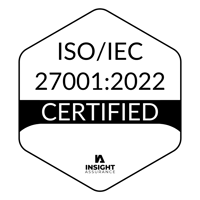
Healthcare brokers are the eyes and ears into the ever-changing healthcare market, and what potential new options might be on the table for an organization. As such, nonprofits must have a broker relationship that meets the unique needs of the organization. Even if you’re happy with your existing representation, it’s worth taking a step back and at least talking with other brokers to see if they have a different approach that may be a better fit for your group.
In addition, it’s important to remember that brokers can be incredibly helpful and supportive, but at the end of the day they want your business and will do (almost) anything to keep it. Remaining as impartial as possible about your current broker and exploring alternatives independent of their help will provide you with the most objective perspective on the process.
Below are six things to consider discussing with any broker you’re considering working with as you begin the renewal process.
- Interest: Having a broker who is interested and knowledgeable about the nonprofit industry, and who asks a breadth of questions about specific employee/organizational needs, can ensure a more vested interest in the end result
- Knowledge base: With so many options on the table, brokers should have a deep understanding of all possibilities ranging from fully-funded, self-funded, and partially self-funded, as well as high-deductible plans, FSAs, HRAs, and HSAs
- Compensation: Perhaps one of the most important questions to consider is how the broker is compensated for his work – flat rate or a premium percentage? Ask for full disclosure of broker fees and commissions
- Cost-effectiveness: Request examples of how the broker compiles savings analyses, has saved other organizations money, and what cost-containment strategies they would implement for your organization
- Customer service: Ensure that you’ll have an account manager overseeing your business throughout the year, reachable whenever needed via a variety of communication modalities, and able to provide solutions to challenging situations
- Education: Ongoing employer and employee communication is key to getting the most bang for your buck with a healthcare plan; determine what regular educational opportunities the broker will offer
For those nonprofits who are renewing on January 1, now is the time to begin these discussions with potential brokers. While you may feel happy with your current broker, it’s recommended that you set up meetings with at least a few other options. Exploring alternatives to your current broker and/or plan is not only smart, it is the fiscal and ethical responsibility of nonprofit leaders to ensure that the most financially-sound and employee-friendly decisions are being made.
Discover more creative ways to determine the best healthcare approach for your organization with our guide Three Steps Nonprofits Should Take Before Renewing.

.png?width=1501&name=Nonstop_Logo-22-Horizontal%20(2).png)



